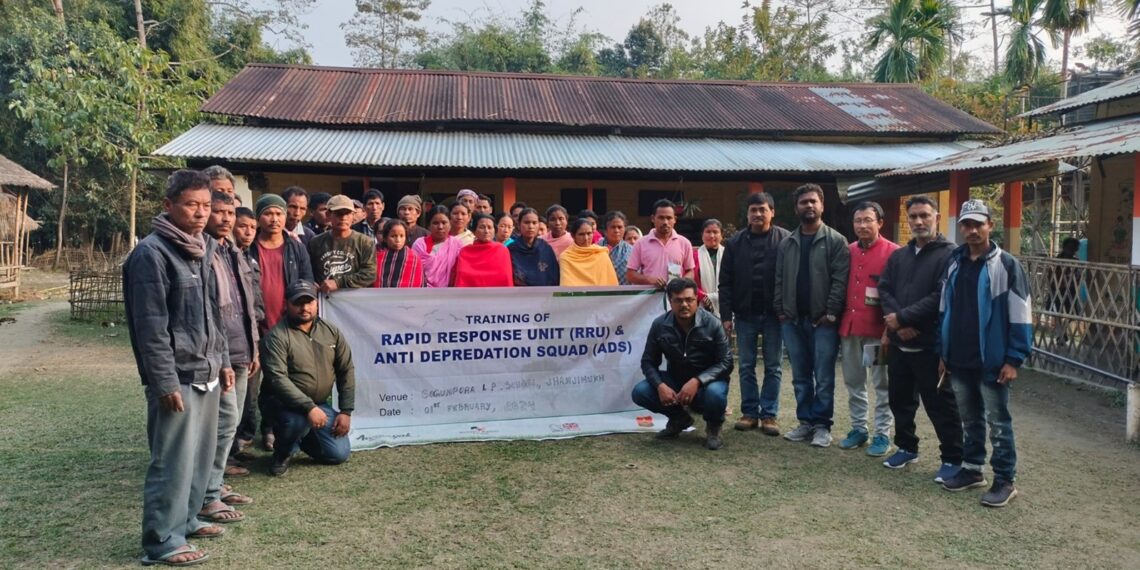GUWAHATI: Adopting a people-centric approach to address human-elephant conflicts (HEC) in parts of Assam and Meghalaya, Rapid Response Units (RRUs) have been formed in several affected villages in the states.
These RRUs, comprising volunteers from HEC-affected villages, have been providing outstanding services by managing the HEC-alert network.
Equipped with knowledge of elephant behaviour and ecology, they act as an early warning system, promptly informing villagers about the presence of wild elephants through dedicated WhatsApp groups, ensuring their safe passage.
To empower these volunteer groups, Aaranyak, a biodiversity conservation organisation, has been conducting specially-designed training workshops.
The organisation recently organised a series of three workshops for RRU members in eastern Assam districts of Majuli, Dibrugarh, and Jorhat.
These workshops, led by organisation’s officials Zakir Islam Bora and Niranjan Bhuyan, aimed at highlighting conservation efforts with the objectives of creating RRUs to ensure biodiversity conservation and people’s well-being.
Dr Bibhuti Prasad Lahkar, a conservation scientist at Aaranyak, highlighted the training module of these workshops and their focus on understanding elephant behaviour, minimising HEC, and effectively monitoring elephant movement in human-use areas.
“We conduct sessions on understanding elephant ecology and behaviour, and how to monitor elephant movement in human-use areas and pass down the information to the villagers through a dedicated WhatsApp group to alert them,” said Dr Lahkar.
Through the collaborative efforts of Aaranyak and local communities, initiatives such as RRUs are fostering coexistence between humans and elephants, mitigating conflicts, and promoting harmony between wildlife conservation and human livelihoods in the region.















